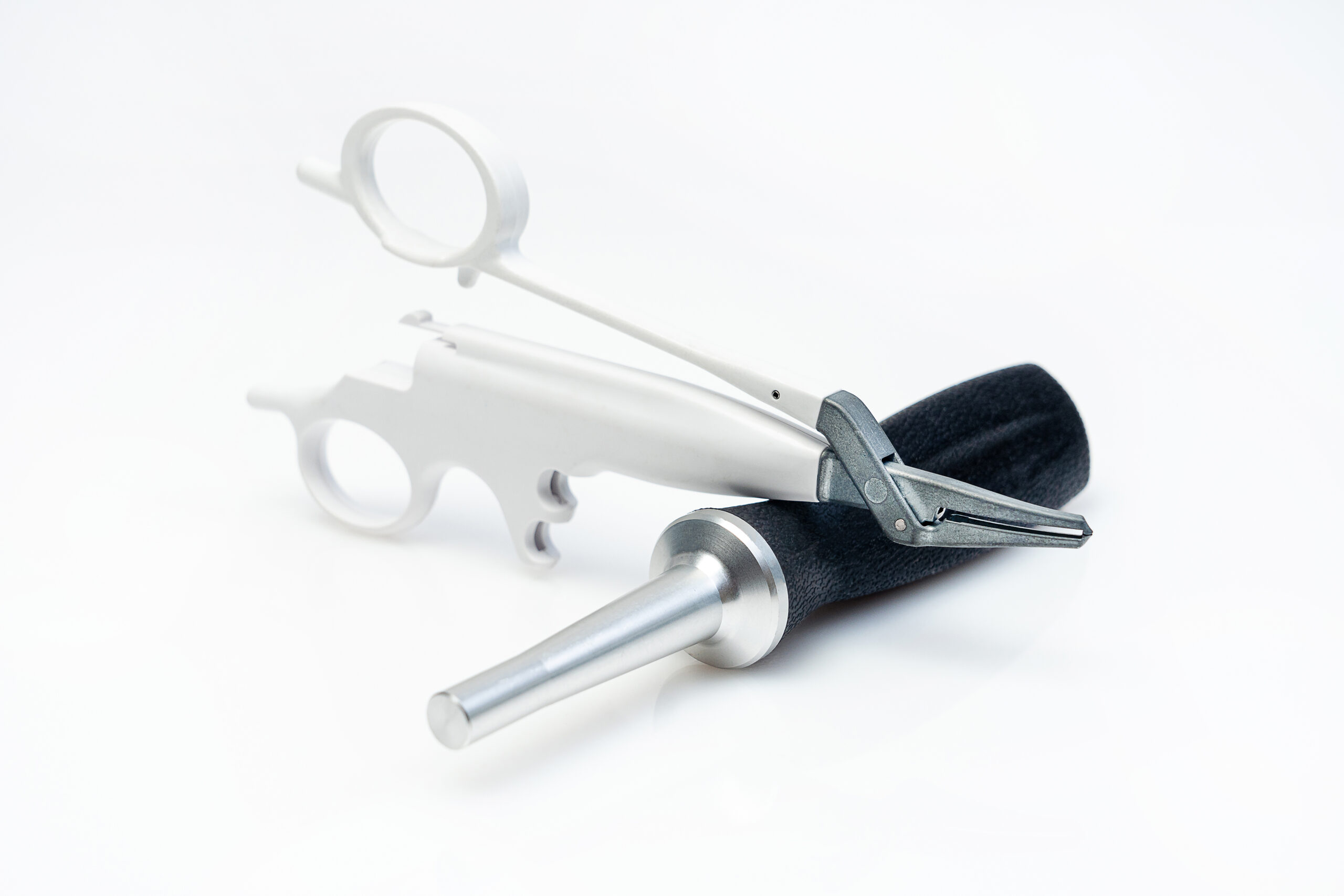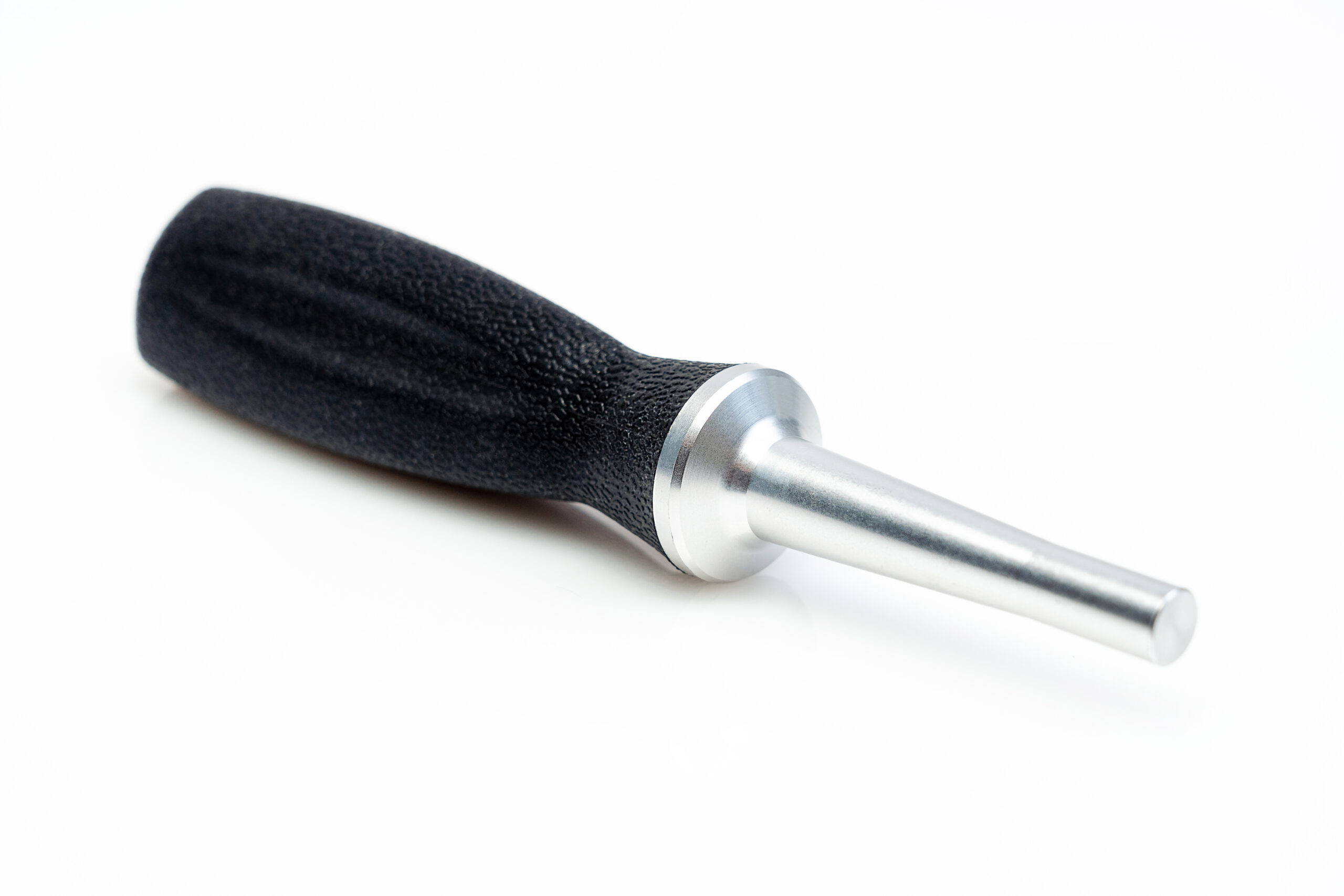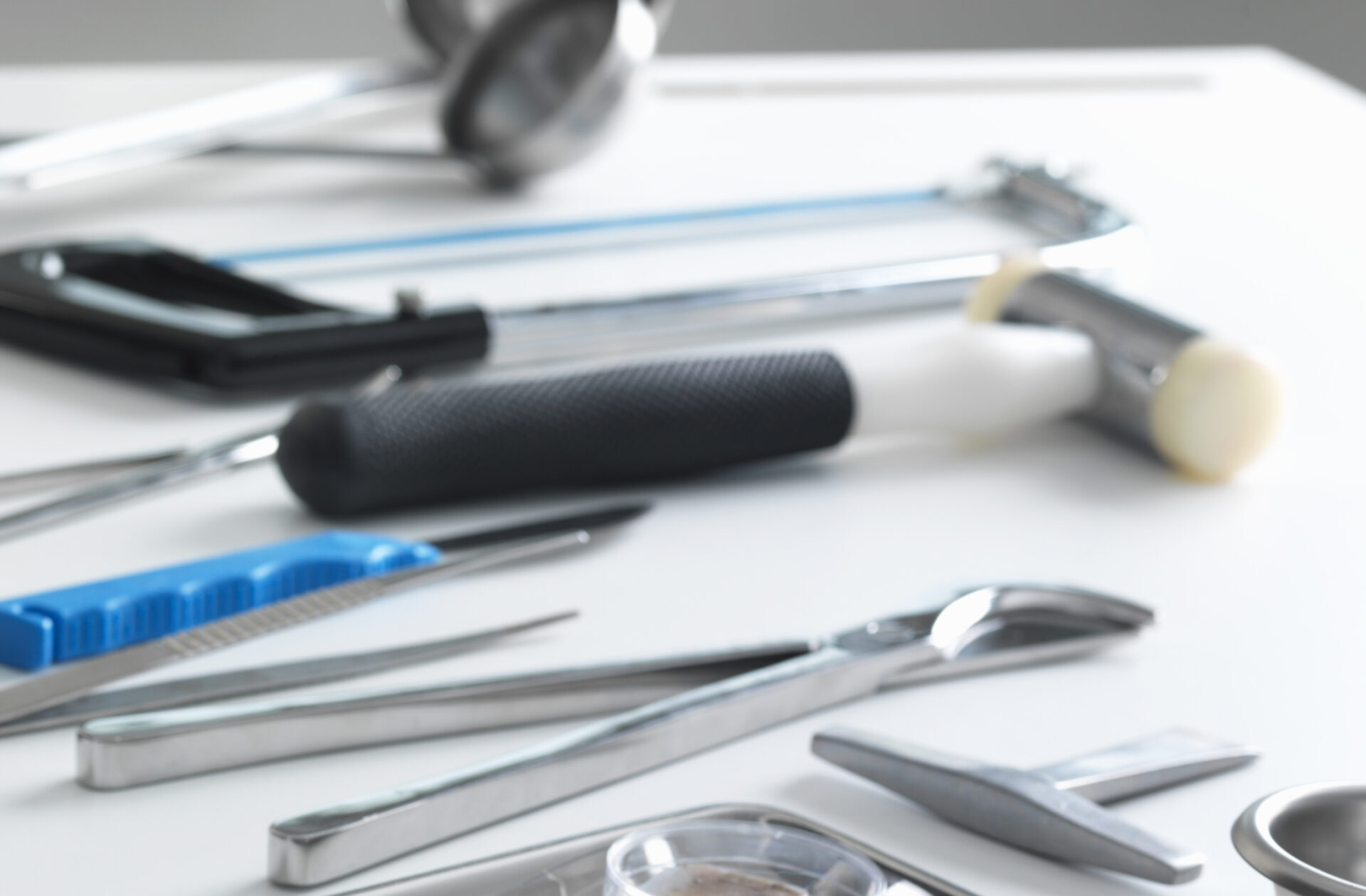
4 Commonly Used Materials in Surgical Grip Manufacturing
When it comes to surgical instrument grips, the choice of material is crucial to ensuring patient safety and the success of the procedure, not to mention the durability and integrity of the handle after numerous cycles of sterilization. As the leader in surgical instrument grip manufacturing, Gulf Engineered Rubber and Plastics Solutions (Gulf) knows the right materials for each medical device application to ensure that surgical instruments are safe, reliable, and comfortable for extended use. Keep reading for an overview of commonly used materials in manufacturing surgical grips:

1. Liquid Silicone Rubber (LSR)
Highly versatile with many processing advantages, LSR provides many features not offered by organic rubber and is a preferred material for surgical instrument grip manufacturing.
Liquid Silicone Rubber Properties:
Non-slip Surface: Provides excellent grip, even when wet, with maximum comfort.
Sterilizable: Can withstand high temperatures and steam exposure required for autoclaving.
Durable: Resistant to wear and tear, ensuring long-term use.
Bond Integrity: With the proper substrate geometry, preparation, and primer/adhesive, LSR can provide a bond that will last for thousands of sterilization cycles with no cracks or gaps for bioburden to penetrate.
Surgical Grip Applications for Liquid Silicone Rubber:
-Often utilized in the handles of reusable surgical instruments like scalpels, scissors, elevators, chisels, rasps, and T-handle drivers.
-Popular in grips for laparoscopic and orthopedic surgical instruments.
2. Thermoplastic Elastomers (TPE)
Thermoplastic elastomers are known for their flexibility, high elasticity, and excellent shock absorption properties which make for great surgical grips. They are a lower cost solution that exhibit the elastic properties of a rubber and the processing characteristics of a thermoplastic.
Thermoplastic Elastomer Properties:
Flexible and Soft: Offers comfort and reduces hand fatigue.
Good Grip: Textured surfaces can enhance grip.
Biocompatible: Safe for use in medical environments.
Durable: UV, tear, and impact resistant
Surgical Grip Applications for Thermoplastic Elastomers:
-Commonly found in ergonomic handles for a variety of surgical tools.
-Used in disposable and reusable medical devices.

3. Polyurethane (PU)
Commonly used for molded shapes, like surgical grips, polyurethane is a versatile synthetic resin known for its durability and flexibility.
Polyurethane Properties:
Versatile: Can be formulated to be either rigid or flexible.
High Abrasion Resistance: Durable under repeated use.
Comfortable Grip: Provides a soft feel that is easy on the hands.
Surgical Grip Applications for Polyurethane:
-Utilized in the handles of precision instruments.
-Ideal for grips on tools that require a high degree of control and dexterity.
4. Polyether Ether Ketone (PEEK)
PEEK is a high-performing thermoplastic polymer used for surgical grip manufacturing due to its chemical resistance and thermal stability.
Polyether Ether Ketone Properties:
High Mechanical Strength: Suitable for high-stress applications.
Chemical Resistance: Withstands aggressive sterilization chemicals.
Biocompatible: Safe for prolonged contact with human tissue.
Surgical Grip Applications for Polyether Ether Ketone:
-Handles and housings for surgical instruments that require a high level of precision.
-Components in orthopedic and spinal surgery instruments.
Start Your Next Project With Our Expert Surgical Grip Manufacturers
The materials used in surgical grips play a pivotal role in the performance and reliability of surgical instruments. That’s why we carefully select materials that provide the necessary balance of durability, comfort, and safety. By understanding the properties and applications of materials like LSR, TPE, PU, and PEEK, Gulf creates superior surgical grips that meet the high standards of the medical industry. Contact our team today to talk about your next surgical grip manufacturing project.
